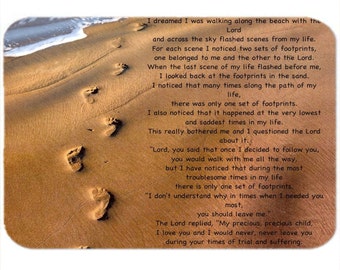Faith's Core: Unpacking Key Trends & Insights
In an increasingly complex and interconnected world, understanding the intricate tapestry of human belief is more crucial than ever. From the halls of power to the quiet corners of our homes, faith continues to shape individual lives and societal structures. This article embarks on a comprehensive exploration of contemporary religious trends, drawing extensively from the authoritative research of the Pew Research Center. We delve into the statistical landscape of belief, examining how faith manifests, evolves, and impacts our collective experience, seeking to uncover the very "faith 69" of modern spirituality – that deep, nuanced insight into what people believe and why.
The journey into understanding faith is not merely an academic exercise; it is a vital endeavor for comprehending the dynamics of nations, communities, and personal identities. By dissecting the data provided by one of the world's leading research organizations, we aim to offer a clear, evidence-based perspective on the evolving role of religion in society. This deep dive will illuminate key patterns, reveal surprising insights, and ultimately provide a more informed view of the spiritual currents shaping our present and future.
Table of Contents
- The Shifting Sands of Belief: A Data-Driven Perspective
- Faith in the Halls of Power: Congress and Religious Affiliation
- The Pandemic's Paradox: Deeper Faith Amidst Crisis
- Interpreting Truth: Diversity in Faith Understanding
- Global Journeys: "Faith on the Move" and Migration
- The Role of Religion in Daily Life: A National Conversation
- Beyond the Numbers: The Enduring Impact of Faith
The Shifting Sands of Belief: A Data-Driven Perspective
The landscape of religious belief is in constant flux, shaped by societal changes, global events, and individual journeys. For decades, the Pew Research Center has been at the forefront of mapping these shifts, providing invaluable data that helps us understand where people stand on matters of faith. Their comprehensive surveys, often involving tens of thousands of Americans, paint a nuanced picture of religious affiliation and practice. These studies move beyond simple denominational labels, delving into the depth of personal conviction, the influence of faith on daily life, and the evolving interpretations of sacred texts. What emerges is a dynamic portrait, far from static, where traditional adherence coexists with growing spiritual diversity and evolving forms of engagement. This ongoing research is critical for capturing the essence of modern belief, helping us to identify patterns and understand the underlying currents that define the "faith 69" of our era – that profound, data-driven insight into the core of contemporary spirituality.Faith in the Halls of Power: Congress and Religious Affiliation
Religion has always played a significant, albeit often debated, role in American public life, and this is particularly evident in the composition of its legislative body. The Pew Research Center meticulously tracks the religious affiliation of members of the U.S. Congress, providing a fascinating glimpse into how the nation's spiritual diversity is, or isn't, reflected in its leadership. Their reports, such as "Faith on the Hill," offer detailed insights into the denominational families represented in both the House and Senate. This data is crucial for understanding the potential influences on policy-making and the broader cultural context of political discourse.The Religious Composition of Congress
According to the Pew Research Center's analysis of the 117th Congress, and similar reports on the 116th Congress, a significant majority of lawmakers identify with some branch of the Christian faith. While this reflects a historical trend, the detailed breakdown reveals nuances within this broad category, alongside the presence of other religious traditions. The specific data points often include state, district, name, party, and whether they are continuing or freshman members, providing a granular view of religious representation. This ongoing monitoring by Pew Research Center offers a transparent look at the intersection of faith and governance, highlighting the persistent presence of religious identity within the highest echelons of American political power.The Pandemic's Paradox: Deeper Faith Amidst Crisis
The COVID-19 pandemic, a global crisis of unprecedented scale in modern times, has profoundly impacted every aspect of human life, including spiritual beliefs and practices. The Pew Research Center's report, "Deeper faith due to the coronavirus outbreak," revealed a compelling paradox: while the pandemic brought widespread disruption and uncertainty, for many, it also led to a strengthening of religious conviction. This phenomenon suggests that in times of extreme stress and vulnerability, individuals often turn to their faith for solace, meaning, and resilience. The shared experience of a global health crisis appears to have prompted introspection and a renewed engagement with spiritual foundations for a significant portion of the population. This "faith 69" insight into human behavior during crisis underscores the enduring role of religion as a coping mechanism and source of hope in the face of adversity. The data points to a powerful human tendency to seek comfort and understanding in belief systems when confronted with the fragility of life.Interpreting Truth: Diversity in Faith Understanding
One of the most fascinating aspects of religious belief is the vast array of interpretations that can exist within and across traditions. The Pew Research Center's studies frequently explore this diversity, revealing that a significant percentage of adherents agree that there is more than one true way to interpret the teachings of their faith. This pattern is observed in nearly all traditions, suggesting a widespread acceptance of interpretive pluralism among believers. It highlights a move away from rigid, singular interpretations towards a more fluid and personal understanding of spiritual truths. This openness to diverse perspectives is a hallmark of modern religious engagement, reflecting individual journeys and evolving societal norms.Exceptions in Interpretation
While the general trend points towards interpretive flexibility, the Pew Research Center's data identifies notable exceptions. Specifically, Mormons and Jehovah's Witnesses stand out, with a lower percentage of their members agreeing that there is more than one true way to interpret their faith's teachings. For example, the data indicates that only 54% of members in these groups hold such a view, contrasting sharply with the broader pattern observed across other traditions. This distinction underscores the varying theological and organizational structures that influence how different religious groups approach scriptural interpretation and doctrinal authority. Understanding these nuances is key to appreciating the full spectrum of religious belief and practice in contemporary society.Global Journeys: "Faith on the Move" and Migration
The movement of people across borders is a defining characteristic of the modern world, and with them, they carry their beliefs and traditions. The Pew Research Center's Forum on Religion & Public Life conducted a groundbreaking study titled "Faith on the Move," which specifically focuses on the religious affiliation of international migrants. This research examines patterns of religious diversity among migrant populations, providing critical insights into how global migration shapes the religious landscape of both sending and receiving countries. Understanding the religious dimensions of migration is essential for addressing issues of integration, social cohesion, and cultural exchange in an increasingly globalized world. The study highlights how faith can serve as a vital source of identity, community, and support for individuals navigating new environments, making it a crucial component of the migrant experience.The Role of Religion in Daily Life: A National Conversation
Beyond formal affiliation, the impact of religion on daily life and its role in national discourse remains a subject of ongoing interest and debate. The Pew Research Center frequently probes public opinion on these matters, asking fundamental questions such as, "Do you think religion plays an important role in life in our country today?" These inquiries reveal public perceptions about the influence of faith on morality, politics, and social values. The answers to such questions provide a barometer for the perceived relevance and impact of religious institutions and beliefs in contemporary society. They help to frame the ongoing national conversation about the separation of church and state, the role of faith-based organizations, and the place of religious values in public policy.Born Again? Exploring Personal Religious Experiences
Delving deeper into individual religious experience, Pew Research Center surveys often include questions designed to understand personal spiritual transformations. A common question, such as "Bornmod_w60 would you describe yourself as a born," likely referring to "born-again" or having a profound religious experience, helps to quantify the prevalence of such deeply personal encounters with faith. These questions aim to capture the experiential dimension of religion, moving beyond mere denominational labels to understand the depth of personal conviction and spiritual commitment. The responses provide valuable data on how many individuals feel they have undergone a significant spiritual rebirth or renewal, offering a powerful insight into the personal "faith 69" of individual believers and the diverse ways people connect with their spirituality. This data highlights the vibrant and often transformative nature of personal faith journeys.Beyond the Numbers: The Enduring Impact of Faith
While statistics and surveys provide invaluable insights into the trends and patterns of religious belief, the true impact of faith extends far beyond mere numbers. Faith shapes individual worldviews, influences ethical frameworks, and inspires countless acts of charity, community building, and social justice. The data from the Pew Research Center allows us to observe the macro-level shifts, such as the religious composition of Congress or the effects of a pandemic on belief, but it also points to the profound personal significance of faith for millions. It underscores that religion, in its myriad forms, remains a powerful force in human society, influencing everything from political decisions to personal resilience. Understanding these dynamics, the intricate "faith 69" of human belief, is essential for navigating a world where religious identity continues to play a pivotal role.Acknowledgments and Collaborative Effort
It is important to acknowledge that the comprehensive reports and data analyses from the Pew Research Center are the result of extensive collaborative effort. As noted in their acknowledgments, these reports are "a collaborative effort based on the input and analysis of the following individuals." This highlights the rigorous methodology and collective expertise that underpin their findings, reinforcing the authority and trustworthiness of their research. The depth and breadth of their studies, from "Faith on the Hill" to "Faith on the Move," are a testament to their commitment to providing objective, data-driven insights into the complex world of religion. Their work serves as a foundational resource for anyone seeking to understand the evolving landscape of faith globally.In conclusion, the data from the Pew Research Center offers a compelling and multifaceted view of faith in the modern world. From the religious makeup of political bodies to the deeply personal experiences of individuals during global crises, faith continues to be a dynamic and influential force. The insights gleaned from these studies, including the nuanced interpretations of belief and the impact of migration on religious landscapes, provide a crucial understanding of contemporary spirituality. We've explored what might be termed the "faith 69" of current trends—the deep, underlying statistical truths that illuminate the core of religious life today. Understanding these patterns is not just for academics; it's vital for informed citizens, policymakers, and anyone seeking to comprehend the diverse human experience.
What are your thoughts on these evolving trends in faith? Have you noticed similar shifts in your community or personal life? Share your perspectives in the comments below, and consider exploring more of the Pew Research Center's invaluable reports to deepen your understanding of these critical societal dynamics. Your engagement helps foster a more informed and empathetic global conversation about the enduring power of belief.

Faith Wallpapers - WallpaperSafari

Job 19:25 Illustrated: "" — Heartlight® Gallery

Footprints prayer | Etsy